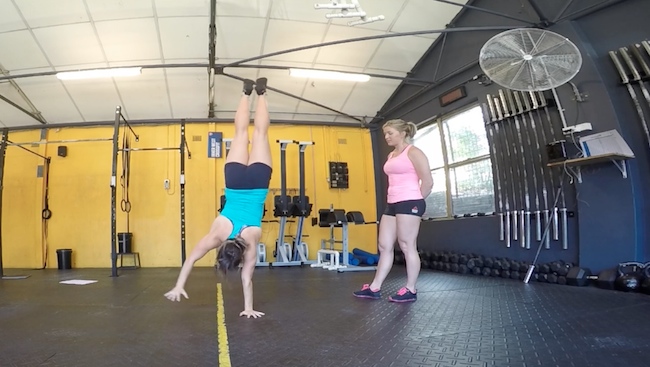
8 Effective Ways to Manage and Survive Chronic Pain
If you’re among the 30% of people worldwide living with chronic pain, you know how much it can affect daily life. Unlike short-term pain that heals with time or medication, chronic pain persists for three months or longer, often interfering with work, relationships, sleep, and mental health.
Chronic pain has many causes, from physical injuries to underlying diseases and even psychological factors. However, managing chronic pain is possible with the right strategies and support.
In this article, we’ll explore 8 proven techniques you can use to take control of your life and manage chronic pain effectively.
Understanding Chronic Pain
Before diving into solutions, it’s important to understand what chronic pain really is.
Chronic pain is not just a symptom—it is a complex health condition. Studies suggest that persistent pain is linked to changes in how the brain and nerves process pain signals. Even when the original injury or disease heals, the brain can continue to interpret signals as pain.
Common causes of chronic pain include:
- Arthritis
- Back injuries
- Fibromyalgia
- Nerve damage
- Migraines
- Past surgeries
- Psychological stress
Studies have shown treating depression and anxiety might decrease the intensity of pain and improve the quality of your life. Talk with your doctor in case you ever notice any symptoms of anxiety or depression.
8 Proven Ways to Manage Chronic Pain
1. Stay Active with Gentle Exercise
Although it might seem counterintuitive, staying active is one of the most effective ways to manage chronic pain. Gentle exercise:
- Strengthens muscles
- Reduces inflammation
- Improves flexibility
- Releases endorphins (natural painkillers)
Start with low-impact activities like:
- Light stretching
- Yoga
- Tai Chi
- Swimming
- Walking
A study by Harvard Health found that regular, moderate exercise can reduce chronic pain symptoms by up to 25%.
Tip: Consult your healthcare provider before starting any exercise routine.
2. Practice Good Posture and Body Mechanics
Bad posture can worsen pain, especially in the back, neck, and joints. Practicing proper body mechanics while sitting, standing, lifting, and walking can prevent further strain.
Simple ways to improve posture:
- Keep your back straight
- Distribute weight evenly on both feet
- Adjust your desk and chair ergonomically
- Use lumbar supports while sitting
Maintaining correct alignment helps your muscles and joints work efficiently and reduces unnecessary stress.
3. Use Medication Wisely
Over-the-counter medications like:
- Ibuprofen (Advil)
- Acetaminophen (Tylenol)
- Naproxen (Aleve)
The above can temporarily relieve pain. In some cases, your doctor may prescribe stronger painkillers, antidepressants, or nerve medications to manage severe chronic pain.
Alternative options like CBD products or medical cannabis have also shown promise in pain management.
(Source: Harvard Medical School)
Caution: Always discuss the use of new medications or natural remedies like CBD with your healthcare provider first.
4. Reduce Stress with Relaxation Techniques
Stress significantly amplifies the body’s perception of pain.
Incorporating relaxation techniques can interrupt the stress-pain cycle:
- Deep breathing exercises
- Meditation and mindfulness
- Progressive muscle relaxation
- Guided imagery
According to the American Psychological Association, mindfulness-based stress reduction (MBSR) programs have helped many chronic pain sufferers experience lower pain intensity and improved mood.
5. Pace Yourself Throughout the Day
Overdoing and underdoing activities both worsen chronic pain.
Pacing is about finding a balance between activity and rest.
How to practice pacing:
- Break tasks into smaller steps
- Take frequent short breaks
- Plan your day realistically
- Avoid waiting until you’re in extreme pain to rest
Pro Tip: Use timers or apps to schedule activity and rest periods.
6. Treat Underlying Conditions Like Depression and Anxiety
Studies have found that up to 85% of people with chronic pain also suffer from depression.
(Source: American Chronic Pain Association)
Addressing mental health issues with therapy, counseling, or medications can:
- Lower pain perception
- Improve sleep
- Increase coping abilities
Talk to a healthcare professional if you notice symptoms of:
- Persistent sadness
- Irritability
- Loss of interest
- Anxiety attacks
- Managing emotional health is crucial for chronic pain recovery.
7. Maintain Social Connections
Chronic pain often leads to isolation, which worsens emotional suffering.
Staying connected with family, friends, and support groups can:
- Provide emotional support
- Offer distraction from pain
- Improve overall mental wellbeing
Virtual meetups, phone calls, or even joining online forums for chronic pain patients can help you feel less alone.
Bonus Tip: Consider joining local or online chronic pain support groups to share experiences and coping tips.
8. Prioritize Good Sleep Hygiene
Poor sleep increases sensitivity to pain. In fact, sleep disturbances are twice as common among chronic pain sufferers compared to the general population.
Improve your sleep by:
- Establishing a consistent bedtime
- Limiting caffeine and electronics before bed
- Using relaxation techniques at night
- Creating a quiet, dark, comfortable bedroom
If insomnia persists, consult your doctor for cognitive behavioral therapy for insomnia (CBT-I), which is effective for chronic pain patients.
Final Thoughts
Living with chronic pain is challenging, but by combining medical treatments, self-management techniques, and mental health care, you can regain control over your life.
Use these 8 evidence-based strategies consistently to reduce your pain, improve your mood, and live better. Remember, everyone’s journey is unique—work with your healthcare provider to build a plan tailored to your needs.
Take small steps today for a healthier, pain-managed tomorrow.


















Follow Us